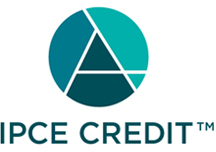Identifying and Developing a PCO Goal and Tracking it Using GAS (SW Credits)
Course
Self Paced
Expires: April 3, 2027
In this training you will learn how to have a values discussion to identify what matters most to an individual and translate what matters most into a SMART goal that can be measured and tracked overtime.
About this On Demand Training
Identifying and Developing a Person-Centered Outcome Goal and Tracking it Using Goal Attainment Scaling (SW Credits)
The training will provide best practices as well as examples of how to develop a SMART person-centered outcome goal from a value. Once you learn how to develop a SMART person-centered outcome goal, you will learn how to use goal attainment scaling to document and track a person-centered outcome goal. Goal attainment scaling is a tool designed to help create goals that are both relevant to the individual and measurable as quality metric. It’s a technique that has been around since the 60’s and has been used heavily in mental health, rehabilitation, disease management and geriatrics.
What You Will Learn
- Guide an individual towards identifying what matters most through a discussion on values.
- Define SMART (Specific, Measurable, Attainable, Relevant, & Time-bound) goals.
- Translate what matters most into a SMART person-centered outcome goal.
- Document an individual’s SMART goal into a standardized scale (goal attainment scaling).
- Use goal attainment scaling to document, track and assess goal progress overtime in a standardized way.
- Identify best practices for implementing the approach with diverse populations.
Who Should Attend
- Health care professional
- Healthcare decision maker
- Consultant
- Health plans
- Wellness organization leverages in federal, state, employer
Faculty
Daniela Lawton, MPH
Sarah Sweeney, MSW, MPH
Caroline Blaum, MD, MS
Continuing Education

In support of improving patient care, the National Committee for Quality Assurance is jointly accredited by the Accreditation Council for Continuing Medical Education (ACCME), the American Nurses Credentialing Center (ANCC), and the Association of Social Work Boards (ASWB) to provide Interprofessional Continuing Education for the healthcare team.
This educational activity is approved for: 1 ASWB contact hours.*
* Please note – You must attend the entire program to be eligible for total number of contact hours.
.
DISCLOSURE OF RELEVANT FINANCIAL RELATIONSHIPS
The National Committee for Quality Assurance (NCQA) endorses the Standards of the Accreditation Council for Continuing Medical Education which specify that sponsors of continuing medical education activities and presenters at and planners for these activities disclose any relevant financial relationships either party might have with commercial companies whose products or services are discussed in educational presentations.
For sponsors, relevant financial relationships include large research grants, institutional agreements for joint initiatives, substantial gifts, or other relationships that benefit the institution. For presenters or planning committee members, relevant financial relationships include the receipt of research grants from a commercial company, consultancies, honoraria, travel, or other benefits, or having a self-managed equity interest in a company; or having an immediate family member or partner with such a relationship.
Disclosure of a relationship is not intended to suggest or condone bias in any presentation but is made to provide participants with information that might be of potential importance to their evaluation of a presentation.
Relevant financial relationships exist with the following companies/organizations:
Faculty:
Daniela Lawton, MPH: None
Sarah Sweeney, MSW, MPH: None
Caroline Blaum, MD, MS: None
Additional Planning Committee Members:
Cathy Beckner, MS: None
Here is the course outline:
1. Resource |
2. Recording |
3. Attestation |
Completion
The following certificates are awarded when the course is completed:
 |
CCE Other Certificate |
 |
Certificate of Attendance |
 |
Social Worker Certificate |




.png?lmsauth=c974412c78f2cccd0e41bed9be584bd855298ed6)